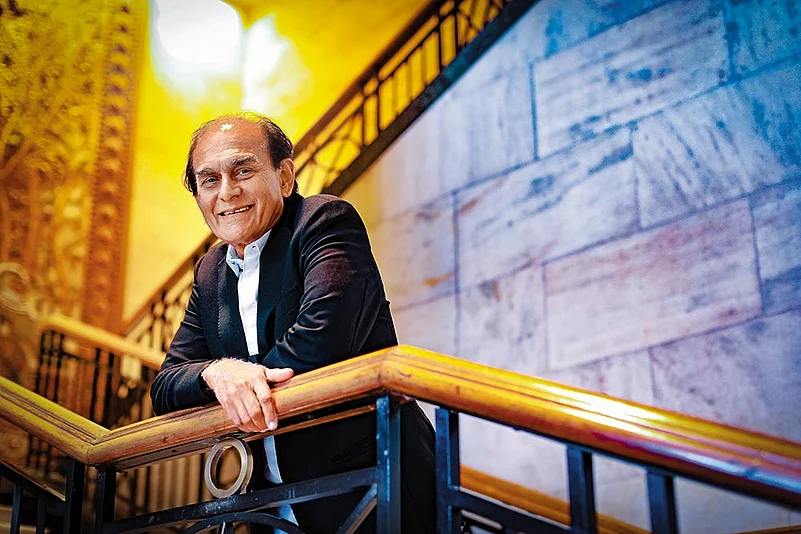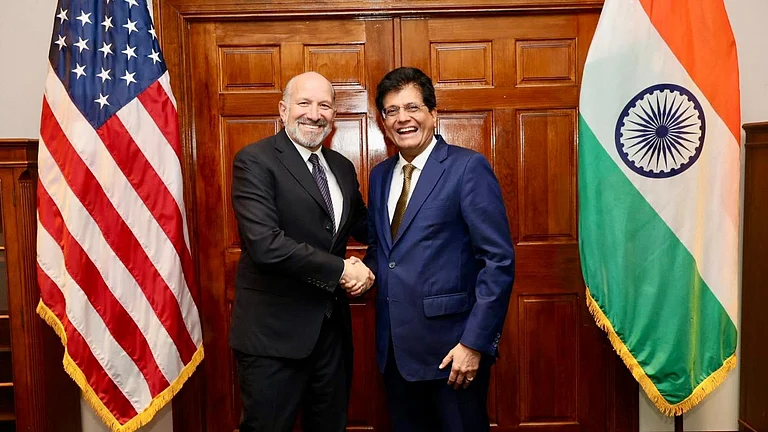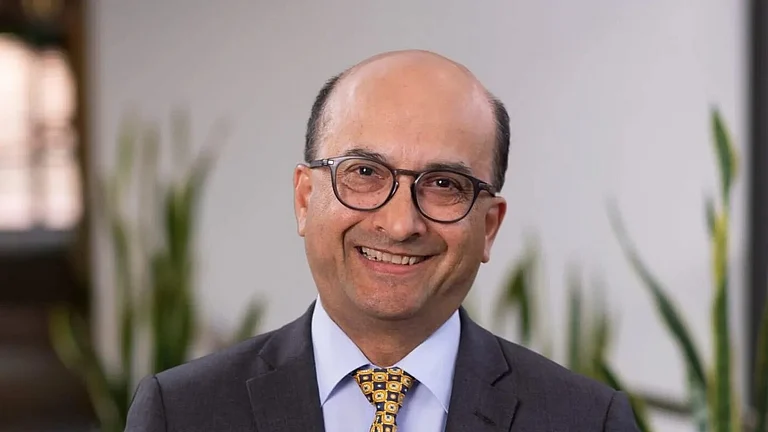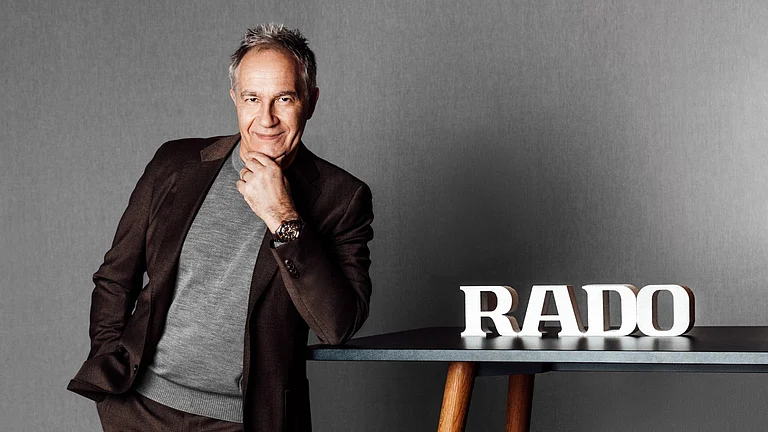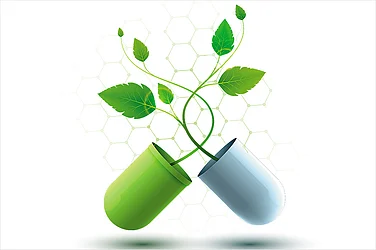“You don’t see a family member becoming Marico’s CEO,” I ask Harsh Mariwala.
The answer isn’t an easy one – neither for a chairman, nor for a father – especially when the company he built derives its name from the family. Marico, short for Mariwala and Company, is a $8-billion packaged food and cosmetics company, owning brands such as Parachute and Saffola.
“I can’t rule it out but it looks like we have turned (into) strategic investors,” says Mariwala, who met me at his office on the eight floor of Grande Palladium, a corporate complex in Mumbai’s Santacruz East.
“Does it hurt you somewhere,” I ask further.
“Not at all,” says Mariwala. “I think I am very clear that the company must continue even if I am not there. You can only build perpetuity in a company if it is managed by a very strong board.”
It is not new for Mariwala to take bold steps, which he says helped in making Marico products a household brand. He did it way back in the 1970s – when he was just a 20-year-old. Fresh out of Sydenham College he joined the family business: Bombay Oil Company (BOI), which traded in coconut oil and spices, from Masjid Bunder, Mumbai’s (then Bombay) largest wholesale market situated near the docks.
Mariwala is the fourth generation into the family business started by two brothers, Vasanji Morarji and Kanji Morarji. One of the mainstays of the business in those days was selling “pepper”, which means “mari” in Gujarati. That’s where the family got the Mariwala name. Vasanji’s sons Vallabhdas and Charandas (Harsh’s father) established the coconut oil business. So, the story of Parachute coconut oil predates Harsh Mariwala’s birth, and so does the story of Saffola sunflower oil.
Enters Harsh, With The Consumer In Mind
In those days, before one got into the family business grind, scions took a trip to the US or Europe. Mariwala chose the former. The seed of Marico was sown during that trip. At the convenience stores and malls, he saw a huge array of products displayed on the shelves – opposite to what was in India, where branded goods were limited.
He came back and joined BOI, which sold the Parachute coconut oil to traders in 15-litre tins and bigger barrels. Shopkeepers bought them from wholesalers and sold loose oil to consumers. “I saw an opportunity of converting loose to packed,” adds Mariwala.
He started touring India: Maharashtra, Madhya Pradesh, Uttar Pradesh and Karnataka. No one in BOI had ever visited Nagpur or Jalgaon. Mariwala did, to meet shopkeepers and wholesalers, and to understand consumers and competition. Where air travel wasn’t possible, he took trains – sharing journeys with dhoti-clad locals, at times even with people who wore bullet belts with rifles hanging from their shoulders – a common sight in Madhya Pradesh and Uttar Pradesh in those days. Where hotels weren’t good, he stayed with BOI’s distributors. But, nothing stopped him from knowing his future consumers.
Soon, he launched Parachute in 100 ml, 200 ml and 500 ml packs in Maharashtra. “All I had to do was to convert from unbranded to branded,” he says. But it took him a lot of time to expand. “In those days, one had to go very slowly, no one was ready to bear any additional cost,” says Mariwala. National expansion took 8-10 years.
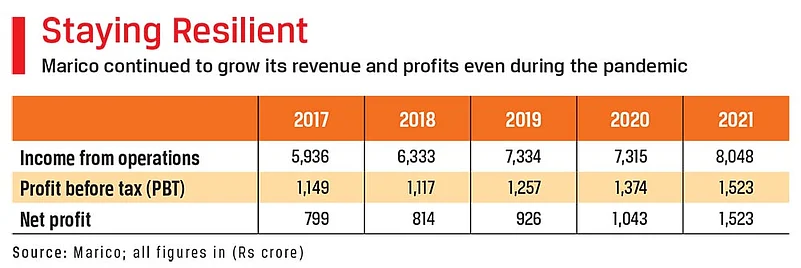
Stepping Out of Bombay Oil Industries
Mariwala knew that if he had to make it big, he had to move the consumer business out of BOI. “I was feeling frustrated. We were unable to get good talent, build the company image or pay salaries to people whom I had hired,” he says.
It took him three years to convince the family to move the consumer product business out. In building Marico, he fought fierce market share battles with market leaders in those days such as Shalimar and Postman, and even conglomerates like the Tata’s and Hindustan Unilever.
So, I had to ask him, “Why did so many brands die? Do you understand consumers more than your peers?”
“For some like Postman, family issues bogged them down. Others didn’t have the vision to take the risk of building a brand or investing in the right people. When you don’t invest in talent or in building the culture, don’t take risks, and don’t manage stakeholders especially family, it gets difficult to carry on,” Mariwala says.
For Mariwala, understanding the consumer isn’t enough. “Growth also depends on macro factors. If the economy grows, urbanisation increases, income increases, and there is a shift towards branded goods,” he says. When Mariwala started, 90% of the coconut oil sold in India was loose. Today, that number is down to 50%.
For years, Mariwala depended on creating brands through building a good product, great distribution, and spend a lot of marketing dollars. But, even that world is changing – due
to digitisation.
Marico And The Changing Market
“You have to see what’s happening internationally,” says Mariwala. “Many trends have accelerated after the pandemic – towards organic, towards personalisation, towards veganism.”
That’s not all. “There is also the generation-Z. They have a different way of looking at things,” continues Mariwala. “We bought hair oil. These young guys buy hair serums, gels and creams. The youth will bring in a new set of opportunities.”
And there is digitisation, ecommerce, and the emergence of digital-to-consumers (D2C) brands. “We acquired Beardo. It is a Rs 100-crore brand, just for beard. These are brands where you don’t need to spend that kind of money to create a brand by advertising on television and print. Here you need social media. And, for distribution you do it through ecommerce platforms like Nykaa,” says Mariwala.
He also talks about the power of women consumers. “They will bring in a new wave of consumerisation. As they become more financially independent, they will spend a lot more on their needs,” he says.
But the biggest shift in Mariwala’s mind is consumer internet.
The Internet, Legacy, and New Businesses
“You need to embrace these trends, and if you don’t do it, that becomes a threat,” says Mariwala, who loves the phenomenon of urbanisation. “We acquired two companies – Beardo and Just Herbs. We also have two brands which are sold on these platforms, only D2C,” says Mariwala.
Also, the legacy mindset doesn’t help, says Mariwala. “We have created a separate organisation for managing this. The traditional mindset of managing FMCG is very different from managing D2C,” he adds.
But, aren’t they all consumers? “No,” says Mariwala. “You reach these customers differently – through ecommerce, through digital advertising, through community building.” This is very different from the legacy consumer goods selling, where companies spend crores on advertising. “At Marico, not only is it a different team, but it is also at a different location – I don’t want any of Marico’s mindset to go into that team. That is key,” he says.
So, what happens to legacy brands like Parachute? Mariwala isn’t giving up on the brands that built Marico. “What we have done is we have offered things which are youth relevant. We have Parachute body lotion, we have Parachute cream, then we are present in the non-greasy hair oil segment, etc,” he says. Marico also acquired Set Wet, which sells creams and gels. It sells serums through the Livon and Hair & Care brands. If there is a transition, there must be something for everyone. “If there is a shift, we have a strong presence in those segments (as well). So, the customer will be with us because we have a presence in all the segments,” says Mariwala.
For him, the customer is the king. “For me, in any business, customer comes first. The starting point of any business is the customer. If you don’t have any customers, you will not have any employees,” he says. While Mariwala might be the man who always has the customer in mind, he has distanced himself from Marico’s day-to-day operations. But still he has a lot to do.
Mariwala, Beyond Marico
Mariwala started Ascent, his foundation for entrepreneurs, in 2012. He started by personally mentoring two or three entrepreneurs. Soon, Mariwala realised that if he had to create impact, he needed to build something around learning, mentoring, and coaching. He wanted Ascent to be a peer-to-peer learning network.
Today, Ascent has over 700 members who learn from each other. It has many programmes and events for fellow entrepreneurs. The PowerUp Programme is a one-on-one mentoring programme for members with thought leaders and domain experts. Ascent has also partnered with Stanford Seed, an initiative of Stanford University for the emerging markets. Then there are workshops and masterclasses, where entrepreneurs’ cohorts are formed to do workshops for various business strategies. And then, there is the ASCENT Conclave, the flagship annual event which celebrates entrepreneurship.
“I am very passionate about the role entrepreneurs play – they create jobs, they create economic growth. If I can influence them, I will be able to drive some economic growth in the country,” says Mariwala.
He has also written a book, “Harsh Realities: The Making of Marico”, in which he talks about his journey. Now that the book is over, he wants to learn new things about the Internet. “I have a little more time, so I have got on Instagram,” says Mariwala, who isn’t new to social media. He already has close to a million followers on Twitter.
“But I am not on Facebook and LinkedIn,” he says. That will have to wait for some time.
***
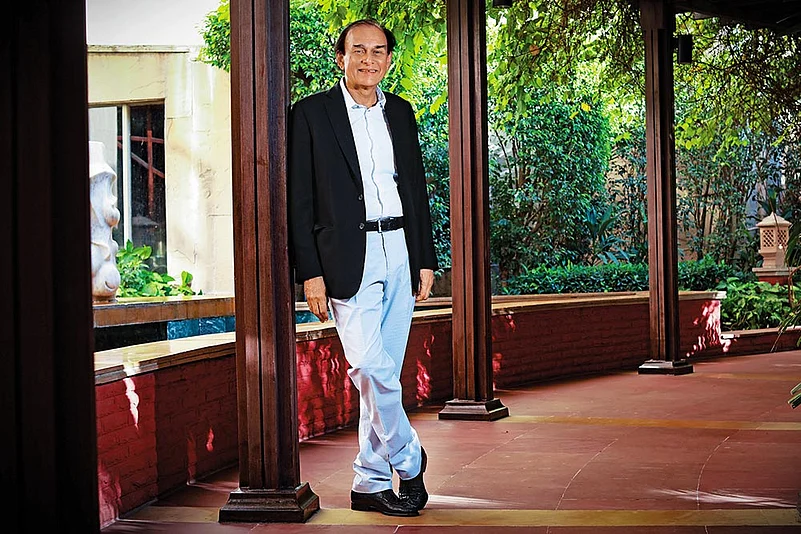
Harsh’s Hurdles
Challenge 1: Convincing his family to move the consumer business out of Bombay Oil to form Marico, which took two-three years.
He reflects: “To me that was the most important decision of my life.”
Challenge 2: Giving two of his uncles – who held stake in the company– an exit before Marico got listed.
He reflects: “I had to buy the stake and I had to pay them money, without which I could not go public, so that took 2-3 years.”
Challenge 3: When Hindustan Levers fought to capture the coconut oil market, finally selling the coconut oil brand to Marico
He reflects: “This was one of the most difficult periods in my life, when we had the battle with Levers.”
Challenge 4: When Mariwala decided to step down from the position of managing director of the company
He reflects: “When I stepped down, there was a lot of pressure. There were things like… My son should inherit me, how will I manage my time.”






